“Books can show you the world” is the kind of adage you might see on a poster in your old elementary school library. But those cheerful posters were definitely onto something—reading really can be world-expanding, as it broadens our perspectives of different societies, cultures, and more.
The following top-notch world history books will give you a new view of important places, people, and objects of the past. From Ancient Greece to the Mongol Empire, they reveal a side to human history that you may have not considered ...
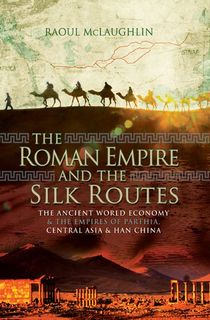
The Roman Empire and the Silk Routes
Explore the intricate web of trade routes established by the Roman Empire to connect to other great civilizations. From the Ancient Persians to the Han Dynasty, Roman merchants crossed paths with rivals and allies alike, and spread their culture far and wide as a result. This is the first book to address these subjects in a single, comprehensive study.
Related: This Was the Average Day For An Ancient Roman Soldier
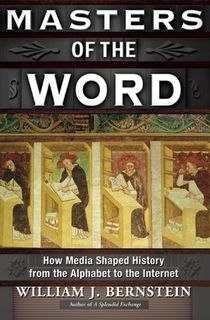
Masters of the Word
From the birth of the written word in Mesopotamia to the role of social media in revolutions like the Arab Spring, language and media have played a major role in shaping our world. This broad, deeply fascinating survey of the history of writing covers some of the world's most influential moments–like the creation of the Gutenberg Bible, the Industrial Revolution, and the rise of radio.
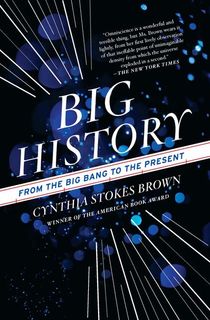
Big History
When Cynthia Stokes Brown says "Big History," she means all of history. This book takes the largest possible view of our universe, beginning at the Big Bang and working towards the present day. It's a fascinating way to learn the story our planet and how we humans, once just stardust, have helped create it.
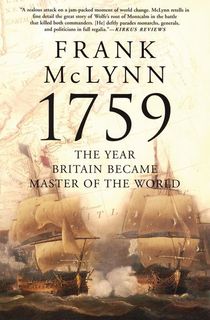
1759
When we think about years that have greatly influenced our modern world, we often think of 1776 or 1492. But 1759 should also be on that list—a year that marks a string of pivotal victories for England. Frank McLynn recounts this 12-month period in his book, revealing how the country’s success on the battlefield set the stage for the growth of the British Empire. Thanks, in part, to the events of 1759, English is now a global language.
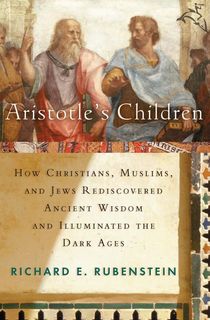
Aristotle's Children
Greek philosophy laid the foundation for religion and science in the West and beyond—but our appreciation for Greeks philosophers wasn't always so uncomplicated. When Aristotle’s ideas were rediscovered in the Middle Ages, religious and government officials felt threatened by the his views on reason and the natural world. Rubenstein studies these controversies, and more, to reveal how Aristotle’s philosophies—and the ways in which they were interpreted—helped shape our modern world and ways of thinking.

The World of Patrick O'Brian
Patrick O'Brian's Aubrey-Maturin books—a series of maritime novels featuring a Royal Navy captain and his ship’s surgeon—took readers on 20 sea-faring adventures. Dean King prolongs the journey in his four companion books, which take a deep dive into the world O’Brian created. That world is actually our own in the early 1880s, so King’s collection includes maps, insights into life at sea, diaries entries of real Royal Navy men, and other historical studies that are relevant to the Aubrey-Maturin series.
Related: 8 Sailing Books That Will Take You to the High Seas
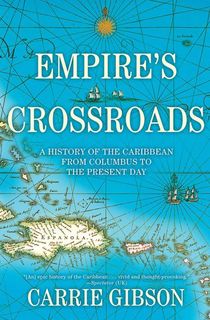
Empire's Crossroads
The "discovery" of the Caribbean by Christopher Columbus changed the course of the world. Its crops, resources, and people were forcibly shifted across Europe and the world. Fortunes were found and lost alike as the intrigue of a new environment brought explorers and prospectors alike to the islands. Gibson traces the history of trade and culture in the Caribbean in this vibrant history of some four centuries.

SPQR
Mary Beard is a celebrated professor of classics at Cambridge University, but her work doesn’t have the stuffy or academic tone you might expect. SPQR is a prime example: It’s a smart and complex history of Ancient Rome—Beard never “dumbs down” her subject—but it’s also an extremely readable and relatively succinct one (considering she’s covering thousands of years). You’ll learn and have a great time while doing it.
Related: 9 Outstanding Audiobooks for Every Kind of History Buff

Guns, Germs, and Steel
Diamond's Pulitzer Prize–winning book tells the story of humanity, focusing on how historic civilizations—and their relative levels of power—came to be. Diamond argues that the first societies to master food production were also the first to develop powerful weapons and means of travel. Thus, the shape of the colonial and modern worlds, he says, can be traced back to geographic factors that influenced early human diets. He expands upon this theory in Gun, Germs, and Steel, drawing from his extensive knowledge of biology, anthropology, medicine, and more to reveal eye-opening insights into human history.
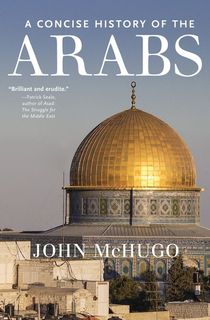
A Concise History of the Arabs
In 350 pages, McHugo elucidates a region that often remains outside of Western comprehension. Updated recently to run through the Arab Spring, this sweeping history starts with Arabs in the time of the Roman Empire. One of the best starting points for a deeper understanding of the Middle East, this comprehensive yet succinct book will capture any history lover's interest.
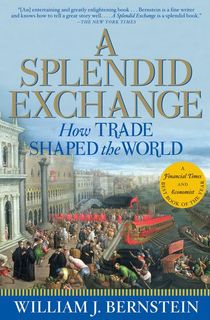
A Splendid Exchange
History echoes–even the history of trade. As the world became ever more interconnected during ancient and medieval times, trade boomed and busted, as it does today. As globalization threatens today's U.S. economy while boosting other countries' around the world, valuable lessons can be found in this history of trade.

The Ascent of Money
It doesn't take an economist or a historian to know that money and finance have played a major role in developing our world. Niall Ferguson charts this longstanding (and ongoing) relationship in his compelling book, The Ascent of Money. In fact, Ferguson argues that money shaped history itself, contributing as much to the rise and fall of civilizations and world powers as did technology, population, and other important factors.

The Silk Roads
The Silk Road connected the East and West, but it has largely been viewed from a Western perspective. Frankopan's book reorients us, placing us in the Middle Eastern and Asian civilizations that thrived (and eventually fell) along this famous network of trade routes—from the Persians to the Mongols. To fully understand our world today, we must try to understand how the histories of these overlooked cities and nations are so closely intertwined with that of the Silk Road.

Salt
People love to trace history through our relationship with objects—drinking glasses, for instance, or clothes. Mark Kurlansky takes that approach in this thought-provoking book, choosing salt as his subject. It has a little-known but significant place in the course of history, as its ability to season and preserve food contributed to the rise of civilization.

Genghis Khan and the Making of the Modern World
Genghis Khan—the founder of the Mongol Empire—was one of history's greatest conquerors, but his bloodthirsty reputation in the West vastly oversimplifies his impact on the world. In Genghis Khan and the Making of the Modern World, Jack Weatherford shows how Khan brought Europe into contact with Eastern civilizations, which then opened trade routes that ushered in a more modern era. By dispelling myths and telling the true story behind the legendary leader, Weatherford shines a new light on Mongol rule and its far-reaching legacy.

Ordinary Men
Ordinary Men is among the most disturbing history books ever written. Browning focuses on the German Reserve Police Battalion 101, a Nazi paramilitary force that committed major atrocities during the Holocaust. Their crimes were extraordinary; but the men, Browning argues, were not. Browning ties together theories about human behavior and authority in an effort to show why historic evils do not necessarily require historically evil foot soldiers.

Dancing in the Streets
Barbara Ehrenreich has made a career of cataloguing the trials and lives of real people. She has written about minimum-wage life (Nickeled and Dimed) and sex workers (Global Woman), among other things and people. Here, she turns her careful eye on large groups and joyful celebrations. The result is a sweeping book that covers everything from Greek revelers to the Grateful Dead.

The Looting Machine
Africa's resources have been squandered and stolen time and time again over the course of the continent's long human history. These problems haven't gone away in recent times; as Burgis's book lays out, African "development" in the 2000s too often left behind Africa's people and ignored the continent’s natural, political, and economic future. The story of why Africa and Africans did not enjoy many of the fruits of development that have been seen in "emerging" economies like those in India and China is the story of war, corruption, and theft from outside and within the continent.

Nothing to Envy Here
Demick's work of history and sociology depicts the harsh realities that existed—and still exist—in the isolated and repressed nation of North Korea. Demick converts interviews with North Korean refugees into moving narratives that collectively paint a portrait of North Korean desperation and the dangerous path to escape. Demick's focus is on the refugees' personal stories, which intersect with larger events in North Korean history like the famine and North Korean economic crisis of the 1990s.

The War that Ended Peace
The causes and conflicts behind World War I were complicated and, in some respects, unusual. Keeping track of them as an armchair historian is tough. But however much you may or may not remember from your last world history class, you'll likely find MacMillan's critically acclaimed account of the path to World War I to be fascinating and insightful. MacMillan shows how a star-studded cast of historical leaders failed to prevent the spiral into war that ended Europe's turn-of-the-century period of peace—which, at the time, was its most peaceful era since the fall of the Roman Empire.
Related: 11 Best World War I Books

The Complete Maus
Spiegelman's Maus is first and foremost a graphic novel, so it's arguably an unusual book for this list. And Spiegelman does take some creative liberties that make Maus technically fictional, or at least unusual—most obviously, the graphic novel depicts Spiegelman's father and other Jewish Holocaust victims as mice, while morphing Nazis into cats. But the guts of this graphic novel comprise the true story of Spiegelman's father, a Holocaust survivor. Artistic choices aside, this is a biography and history book as well as a graphic novel. It's also one of the most essential books ever written (or drawn) on the subject of the Holocaust.
Related: 10 Survival Stories That Reveal the Power of the Human Spirit

The Last Days of the Incas
For roughly a century, the Incan Empire dominated the bulk of South America's western coast. Then, in a relatively brief period of time, the Empire fell to invading Europeans. MacQuarrie's vivid account tells the story of the Incan Empire's fall at the hands of the Spanish, led by conquistador Francisco Pizarro. When MacQuarrie's narrative reaches its end, she continues with a fascinating look at later scholars’ attempts to understand and study Incan civilization, including the 1960s discovery of the ruins of Vilcabamba—which was the real seat of Incan power, despite scholars’ mistaken and decades-long belief that Machu Picchu was the center of the Incan universe.
Related: The Best Travel Memoirs and History Books to Read Before (or During) Your Next Trip

Sapiens
Part science, part history, Yuval Noah Harari's Sapiens is an account of the development of our species and the early human cooperation that formed the basis of human culture. Harari mixes historical and scientific fact with her own compelling hypotheses and a narrative voice to tell the story of how homo sapiens dominated, absorbed, and outlasted five other human species to create mankind as we know it today.














